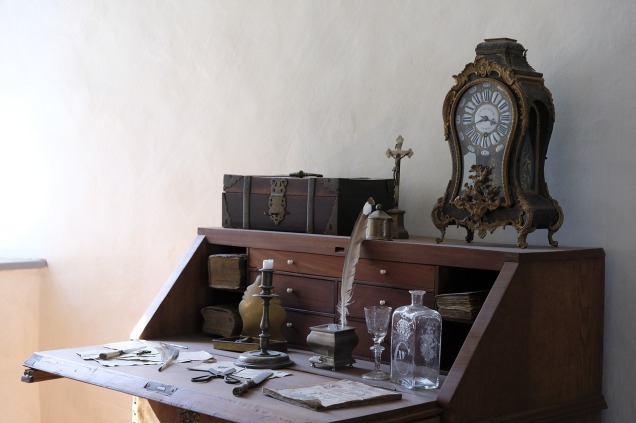
Dispersing an estate is hard. Executors and families have to navigate through an enormous amount of decisions that involve communication and coordination between family members and legal representatives all while living with the emotions of loss. It can be overwhelming.
About a third of our clients are dispersing estates, including those working through living estates for family members who are no longer able to remain at home or make decisions. One thing we know for sure: at the end of the day the executors need to be able to look back at the dispersal process and feel that they did their best work to carry out the intent and directions of the person they are representing. And we do our best to help them with that.
One of the most important things we do when working with families handling estates is to provide support and coaching. We provide the hands on packing and logistical knowledge, and can act as their representative if they live out of the area. But acting as a sounding board, presenting options, communicating with all involved parties and providing solutions is one of the most important tasks we are able to take on.
There are a lot of tasks involved in dispersing an estate. We live our lives every day. We may have our legal affairs in order, but our houses—maybe not so much.This is because we are human. We have the stuff we live with every day. And we have the stuff that hides in nooks and crannies, the product of deferred decision making. We had no reason to make decisions about it, so we didn’t. In other words, estates aren’t just about the assets and heirlooms, they’re also about the stuff of everyday living that has to be managed with to prepare a house for it’s new owner.
We provide a range of services for estate clients, commonly assisting with:
Initial clearing out things like food, recyclables, disposables and unneeded medications for disposal and donation.
Assisting in locating and organizing personal and financial documents, providing secure shredding for high volumes of materials.
Facilitating and coordinating identification, packing and transporting items being taken by family both locally, nationally and internationally.
Sorting remaining items to be sold or donated.
Arranging for the sale of items through consignment and auction.
Packing and delivering items to be donated, or arrange for pickup or items.
Coordinate with real estate agent to stage and prepare home for sale.
Provide inventories to family and legal representatives.
It’s not easy to imagine how someone who doesn’t know your family can be a part of dispersing an estate. About a third of our clients are doing just that. To help explain how we work to thoughtfully and respectfully work with estate clients, here are sketches of three recent jobs.
Case Study 1: The Family is Local estate
Client had lived in their three bedroom colonial home for sixty years, all siblings were local.
Worked in tandem with family for initial clear out of food and disposables.
(Family sorted and removed things being kept.)
Staged home for sale in consultation with real estate agent.
Sorted items not needed for staging to be consigned and donated.
Arranged for pickup or delivered those items to consignment shops, auction galleries and non-profits.
Returned after home was under sale agreement to remove remaining furniture and décor.
Case Study 2: The Long Distance Family Estate
Client had lived in their two bedroom ranch house for 30+ years, no family members were local.
Worked with family on sorting, marking and packing items to be shipped to them during the short period they were on site together.
Provided options and estimates for getting their heirlooms shipped, including an overseas container.
Packed and shipped smaller items via traditional services like USPS, UPS and FedEx.
Arranged secure transport and sale of firearms.
Cleared out all food and disposables.
Emptied house of all goods to be sold and donated prior to listing per realtor’s request.
Provided secure shredding of confidential documents.
Provided clients with donation and consignment inventories.
Case Study 3: The Finish it Up Estate
Client had lived in house for split level for 60+ years and moved out of state to be with family members. Family, all out of state, had removed all personal items and heirlooms.
Coordinated with real estate agent and family to determine that property should be emptied for sale, staging was not needed.
Sorted and removed or arranged for pickup of all items to be consigned and donated.
Consulted with family and shipped two boxes of overlooked personal items and items they regretted leaving behind after they left.
Disposed of refuse in large onsite dumpster, including removing all window treatments and area rugs, basement and garage refuse.
Coordinated services of removal company to empty two sheds on the property.
Arranged for the proper disposal of hazardous household waste.
Arranged for disposal of outdated and poor condition appliances.
Cleaned emptied house prior to listing by real estate agent.
♦ ♦ ♦ ♦ ♦
We’ve had the honor of working with families on estates as small as studio apartments and as large as triple deckers with full attics and basement. No matter what size the household, the most important part of working with a family on an estate is the discovery process. What looks like a ratty old suitcase might be full of letters written by a husband to a wife during WWII. A wedding ring might be hidden in a nondescript box under a dresser. A painting in the pile of “disposable” art might be actually be an original work by a well known modern artist and might sell for $32,000 at auction. A file cabinet full of confidential medical reports might need to be shredded. All of those examples are extremely real, and we have plenty more just like them. (Okay, maybe only a couple of the $32,000 ones.)
We consider it a privilege to assist with an estate—to be there with people through moments that bring tears and others that bring laughter. We appreciate the opportunity and are committed to do our best to make sure that when the family or executor looks back, they can feel that they did their best to honor and respect their relatives memory.
